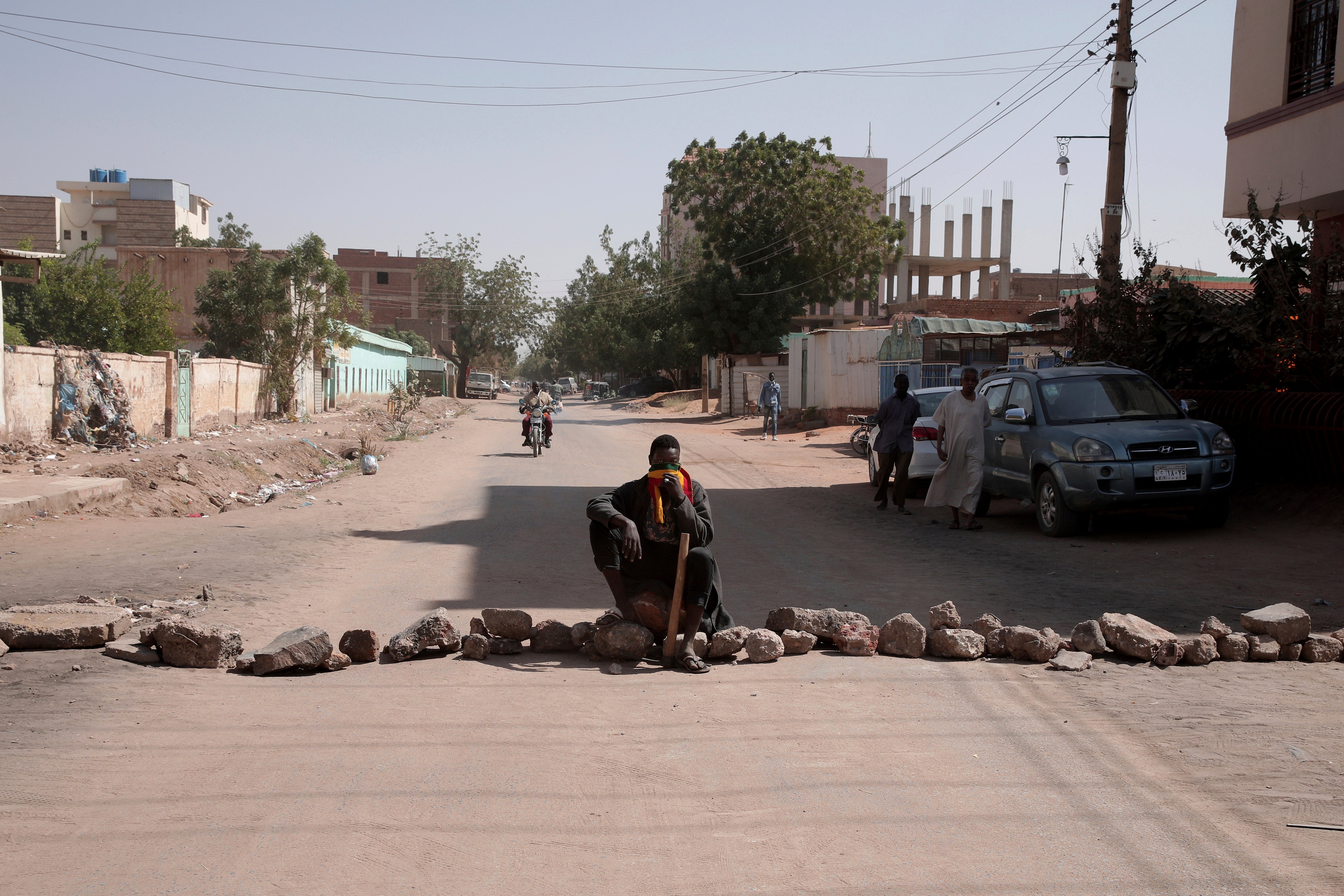EU denounces violence against anti-coup protesters in Sudan
The European Union’s foreign policy chief says Sudan’s military rulers have shown an unwillingness to negotiate a peaceful settlement to the country's ongoing crisis

Your support helps us to tell the story
From reproductive rights to climate change to Big Tech, The Independent is on the ground when the story is developing. Whether it's investigating the financials of Elon Musk's pro-Trump PAC or producing our latest documentary, 'The A Word', which shines a light on the American women fighting for reproductive rights, we know how important it is to parse out the facts from the messaging.
At such a critical moment in US history, we need reporters on the ground. Your donation allows us to keep sending journalists to speak to both sides of the story.
The Independent is trusted by Americans across the entire political spectrum. And unlike many other quality news outlets, we choose not to lock Americans out of our reporting and analysis with paywalls. We believe quality journalism should be available to everyone, paid for by those who can afford it.
Your support makes all the difference.The European Union’s foreign policy chief on Tuesday said Sudan’s military rulers have shown an unwillingness to negotiate a peaceful settlement to the country's ongoing crisis, a day after security forces opened fire on anti-coup protesters in the capital. At least seven people were killed.
Across Sudan, meanwhile, the pro-democracy movement kicked off a civil disobedience campaign to protest Monday's killings. More than 70 people have been killed and hundreds of others have been wounded in mass protests since the military took over on Oct. 25, removing the country’s civilian-led government.
EU foreign affairs chief Josep Borrell said that repeated calls for Sudanese authorities to refrain from violence against protesters “have fallen on deaf ears.”
The coup has upended Sudan’s transition to democratic rule after three decades of repression and international isolation under autocratic President Omar al-Bashir The African nation has been on a fragile path to democracy since a popular uprising forced the military to remove al-Bashir and his Islamist government in April 2019.
Borrell said the ongoing crackdown, including violence against civilians and the detention of activists and journalists, has put Sudan on “a dangerous path away from peace and stability.”
He urged the military authorities to de-escalate tensions, saying: “avoiding further loss of life is of the essence.”
The crackdown, Borrell said, also risks derailing U.N. efforts to find a peaceful solution to the crisis that has worsened with the resignation of Prime Minister Abdalla Hamdok earlier this month.
Hamdok, who was ousted in the October coup only to be reinstated a month later under heavy international pressure, stepped down on Jan. 2 after his efforts to reach a compromise failed. He was the civilian face of the transitional government over the past two years.
There was no immediate comment from Khartoum to EU's condemnation but Gen. Abdel-Fattah Burhan, head of the ruling sovereign council, ordered the formation of a fact-finding commission to investigate the killings, the council said. The commission, which will include security agencies and the public prosecution, has 72 hours to report back, it said.
Monday was one of the deadliest in Sudan since the coup. Security forces used live ammunition and tear gas to disperse thousands of demonstrators in Khartoum. Along with the seven killed, around 100 were wounded, according to the Sudan Doctors Committee.
Police said in a statement that protesters resorted to violence and threw Molotov cocktails on the security forces, in a “military-like tactic,” despite their calls for protest leaders to coordinate the route of their protest marches.
The statement said police used “the least amount of legal force” against attempted attacks on police stations in Khartoum and its twin city of Omdurman. It said at least 50 policemen were injured, and 77 people were arrested.
Also Tuesday, the Friends of Sudan group is convening virtually in Saudi Arabia’s capital, Riyadh, to rally support for U.N. efforts to end the ongoing deadlock. The group, including the United States, Britain and other international governments and world financial institutions, is meant to support Sudan's transition to democratic rule.
“International support and leverage is needed. Support for political process needs to go along with active support to stop violence,” tweeted Volker Perthes, the U.N. envoy for Sudan.
U.S. Assistant Secretary of State Molly Phee and the U.S. newly appointed special envoy for the Horn of Africa, David Satterfield, are attending the Riyadh meeting. They will then travel to Khartoum to meet with the generals and other political leaders and activists in the crisis, according to the State Department.
The protest groups, which have continued to mobilize protesters against the coup, have rejected negotiations with the generals. They insist on handing over power to a fully civilian government to lead the transition.
Though the generals welcomed a U.N. effort to find a way out of the deadlock, they have repeatedly said they will only hand over power to an elected government. They said elections will take place as scheduled next year.